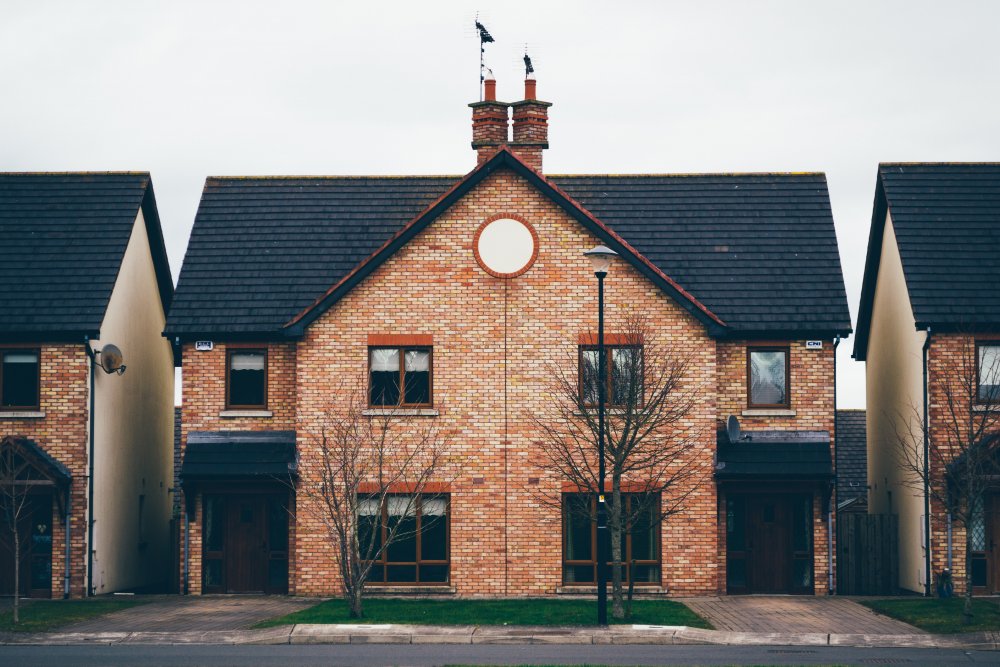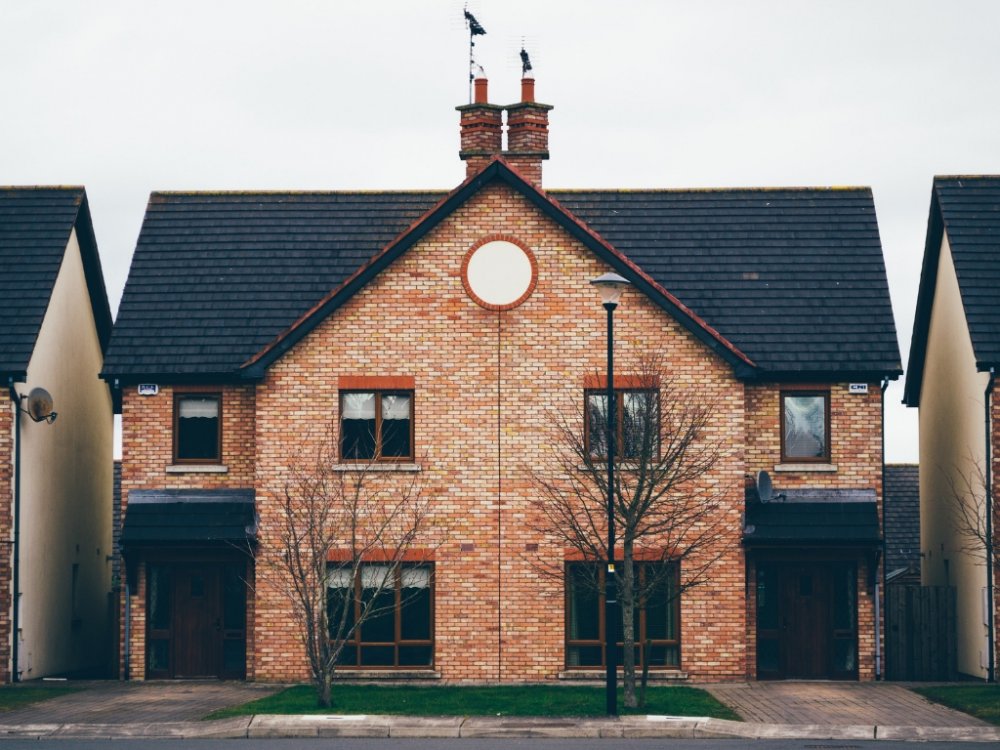If you’re looking to get on the housing market, you’ll almost certainly need a mortgage. But do you really know what you’re looking for? The thought of getting a mortgage can be a scary prospect, especially if you’re a first time buyer; what do you need to do first? What will help you get the best mortgage possible? And what do all the funny terms even mean? Here we’re sharing some of our insight into what you need to know about mortgages.
It goes without saying that we are not professionally qualified financial advisors and as such these are only things that we’ve picked up along the way from our own experiences as homeowners over the last nine years. If you have any questions or concerns before taking out a mortgage make sure you speak to a professional, qualified advisor who should be able to help and support you with your mortgage application process.
Unlike renting, when you own a home, you can make changes to it so that it fits your tastes and lifestyle- whether it’s extending, moving walls, upgrading fixtures and more. But getting onto the property ladder, least of all to buy a home that you’d consider your ‘dream home’ can still be tricky. We’ve done two fixer-upper houses now and are finally somewhere we can see ourselves staying so there is hope. There are some ways to going about it, here are some to consider! If you are unsure of if you can afford a mortgage or what options are available to you, then using tools such as a quick mortgage calculator can help you to assess the type or mortgage you will qualify for and how much you can afford to borrow before you prepare for your application. Doing so will give you a better idea of what type of property you can go for and the funding you will have available to you before you jump into a new property project!

What even IS a mortgage?
A mortgage is a lump sum of money loaned to you by a mortgage provider that pays for the property. It is taken out by first-time buyers and, in many cases, even for second homes and property investments to ensure a maximum of liquidity. You’ll agree up front how much of this lump sum you’ll pay off each month and how many years that will take you to do (otherwise known as the mortgage term). You’ll also agree how much interest you have to pay on it – that’s how much the provider charges you extra each month for the loan. A mortgage is put as a charge against the house. It means that if and when you sell your home, the money will firstly go to pay off your mortgage with any leftovers coming to you as the owner.
What’s the difference between interest only and repayment?
When looking for mortgages you’ll be asked whether you’re looking for an interest only mortgage or a capital repayment one. This is the lenders way of asking what you want to do; do you just want to pay off purely the interest each month or do you want to pay the interest plus some of the loan itself? An interest only mortgage means a smaller monthly payment but when you get to the end of your mortgage term you’ll still owe the full amount you originally borrowed. A capital repayment mortgage means a larger monthly payment but is designed to have paid off the entire loan and all interest by the end of the mortgage term. Put simply, if your mortgage is for £100k at the end of an interest only mortgage, you’ll still owe the £100k. With a capital repayment mortgage, you’ll have paid that off over the years so at the end of the mortgage term you’ll owe nothing. Often interest only mortgages require a lower loan to value ratio as you’ll need to show you are capable of paying back that £100k original loan at some stage.
Related post: How to save money like a pro!

What does Loan To Value (LTV) mean?
Loan to value or LTV is the ratio between how much the house is worth and how much your mortgage (the loan) is for. Effectively it’s saying how much of the home you’ll own outright and is often reflective of your deposit size. For example, you may buy a house worth £200k and get a mortgage to cover £150k of that. This gives you a LTV of 75%. As a general rule, the lower the LTV, the better the mortgage deal that you can get. That may mean lower interest rates or less set up fees. There are two main ways to reduce your LTV; either reduce the amount of loan you need or increase your house value but keep your loan the same. For that reason, if you’ve done substantial work to your home and think the value has gone up, it could be worth getting it re-valued prior to re-mortgaging. Using my earlier example, your £200k home may now be worth £250k. With a £150k mortgage still that brings your LTV down to 60%.
Fixed or Variable?
There are lots of different types of mortgage that go under different names however they usually fall into two categories; fixed or variable rate. This refers to how the payments work each month.. Let’s start with my favourite, a fixed rate mortgage. This type of mortgage means that you’ll pay the same amount every month based upon an interest rate that you agree when you’re taking the mortgage out. This means you’ll always know what you’re paying regardless of whether interest rates go up or down. It means if interest rates rise, you’ll be better off but if they fall, you’ll be paying a higher rate than others might. When you take your mortgage out you’ll agree the period that you’re on that rate for, regardless of whether you go fixed or variable i.e. two years fixed. After this you’ll usually return to the bank’s standard interest rate. If you go for variable, there are various different types but in essence, your monthly payments will differ each time dependent on what the interest rate currently is. There’s more risk as your payments could go up hugely but it also means you’ll benefit from any interest rate drops.

What do I need to apply for a mortgage?
To apply for a mortgage you’ll need to provide plenty of information to potential lenders. First and foremost they’ll want to know what your income stream is like; how much do you earn? Is it a reliable wage? If you’re employed then you’ll normally be required to provide proof of employment such as your employer’s details as well as your payslips from the last period. If you’re self-employed they may ask to see bank records of income for the last few years to prove your business is viable enough to support the mortgage repayments.
They’ll also ask you for your outgoings – what do you spend each month on credit cards, household bills, childcare etc. Mortgage lenders want to know that you’re capable of making the repayments so they’ll be checking not only your employment status and bank records but also your credit score. This combination, with other factors, will allow them to decide how much they’re prepared to lend you. If you’re looking to apply for a joint mortgage, they’ll want this information for both parties.
What’s A Credit Score?
If your credit score isn’t good enough, it could severely hamper your attempts to get a mortgage either reducing the amount they’ll lend you or leading to you being refused a mortgage all together. But what is your credit score and how do you improve it? Your credit score is a three digit number that financial institutions use to calculate how likely you are to make on time repayments. You could have a poor credit score for any number of reasons such as past defaults, late payments or even just that you’ve never really used credit facilities before.
Related post: Spring clean your finances and save £££s!

How Can I Improve it?
Luckily, there are easy steps to take to help improve your credit score. Experian suggest that there are two main factors that affect your credit score – how much credit you use (credit utilisation) and your payment history – so, in order to have the most impact quickly, these are the ones you should focus on first.
Firstly, make sure your details are up to date and you’re paying your current bills on time. Check that you’re registered properly on the electoral roll. If you’re looking to show that you’re capable of repaying credit on time, look for other loans that you can take out and repay within the terms. Be careful, the last thing you want to do is to get a loan that you can’t repay on time as this will negatively impact your credit score. Instead, use a reputable loan lender such as iLoans who can best match a loan to your requirements. Finally, get a copy of your credit report and fight any inaccuracies on there including double checking all of the information on there.
Now What?
If you’re happy that you’re in a good place to start looking at mortgages then it’s time to look around. There are many mortgage comparison sites on the internet, plenty of banks that offer mortgage advice or there’s always the option of using an independent mortgage broker. It’s always worth looking at different types of mortgages; styles, lengths and amounts, to see what feels like the best fit for you and your property. If you’re unsure, then it’s worth seeking out professional advice as it’s almost certainly one of the biggest investments you’ll take out. However, once you’ve found the one for you, it’s time to apply. You’ll enter your details and initially may be offered a ‘mortgage in principle’; basically it’s a soft decision from the provider to say whether or not they’ll offer you a mortgage and the amount they’re willing to loan you. A mortgage in principle isn’t a firm agreement for the mortgage but is a good indication for you to use whilst you’re house hunting!
Like this post? Pin it!












No Comments